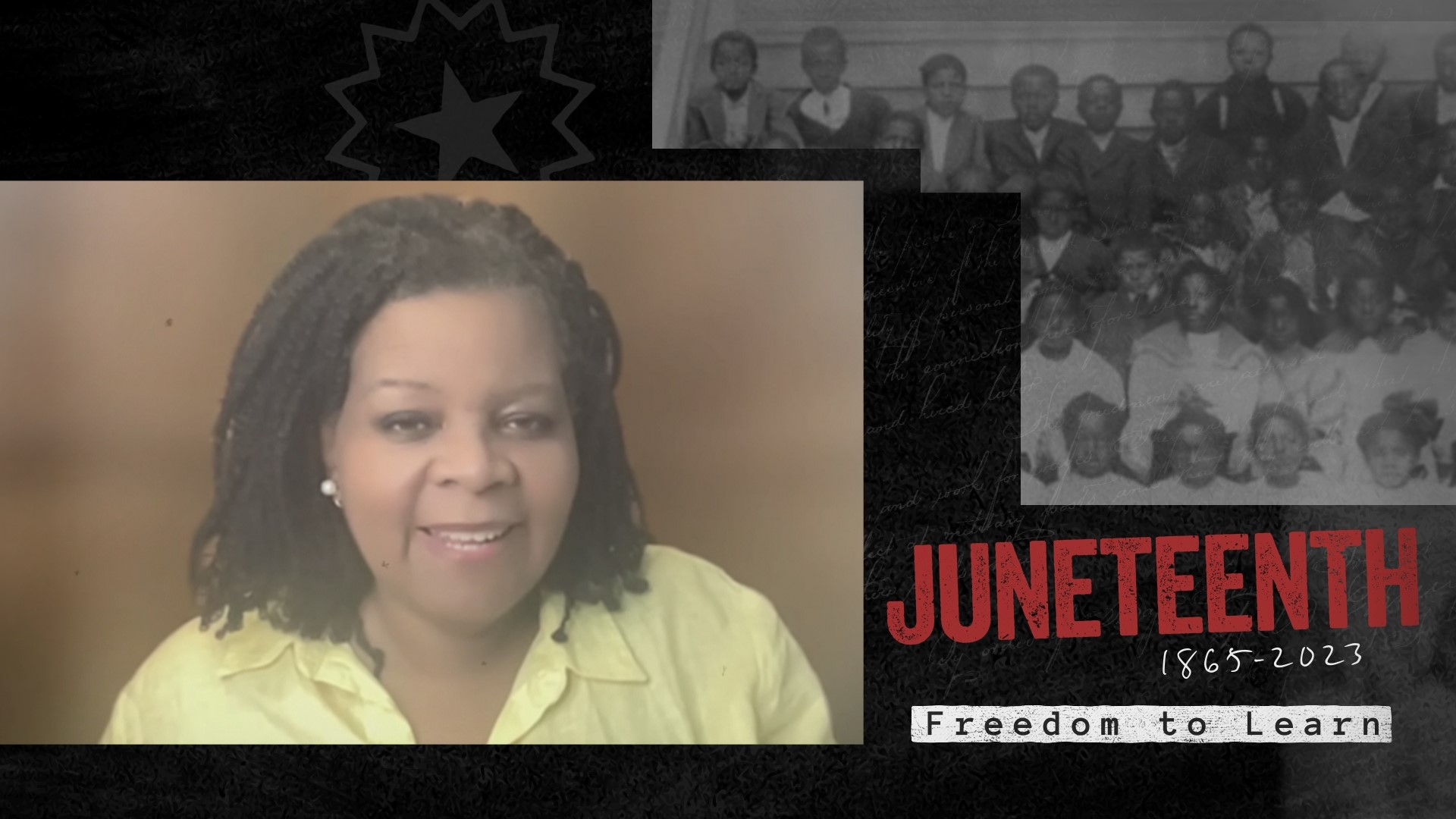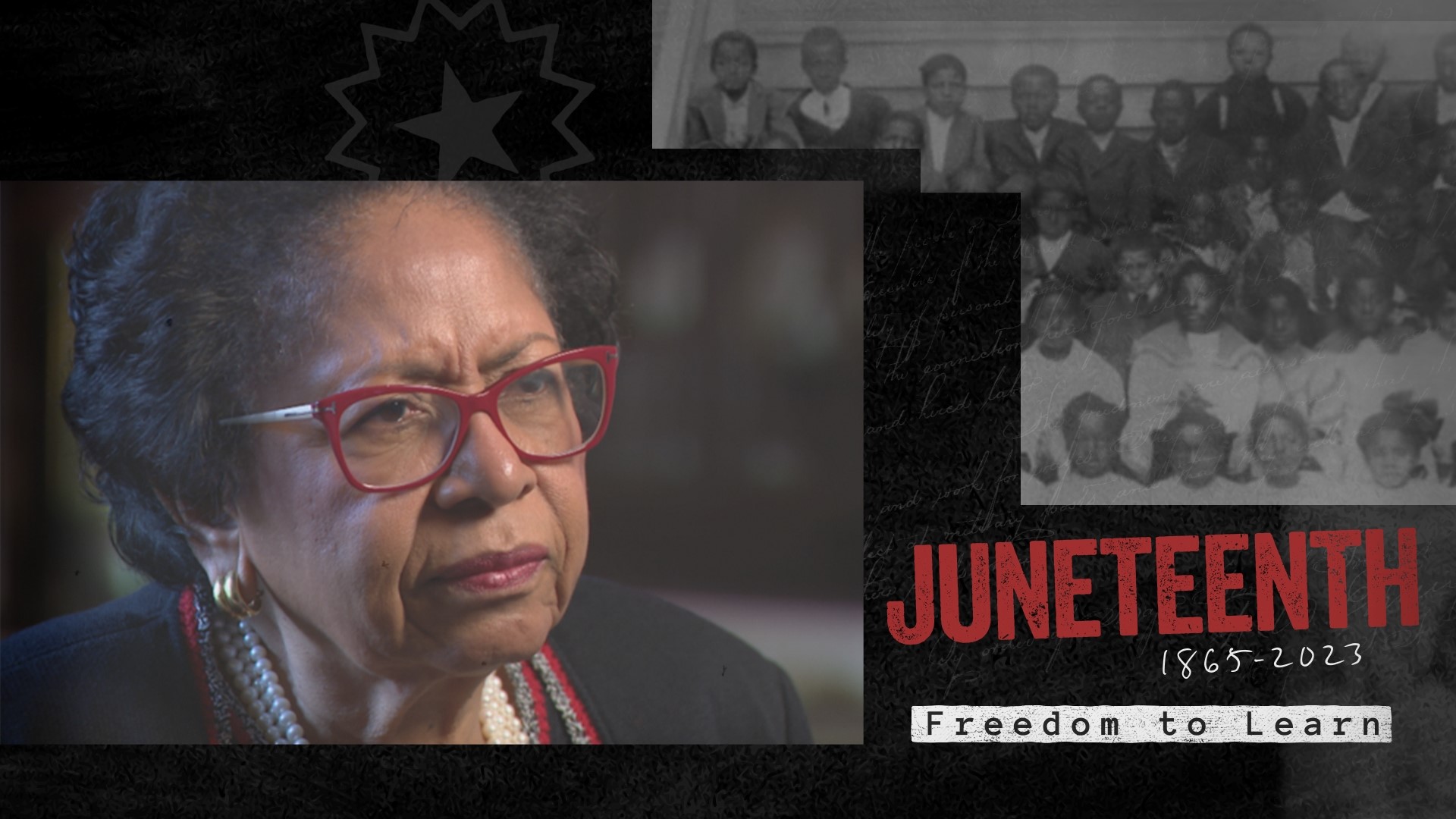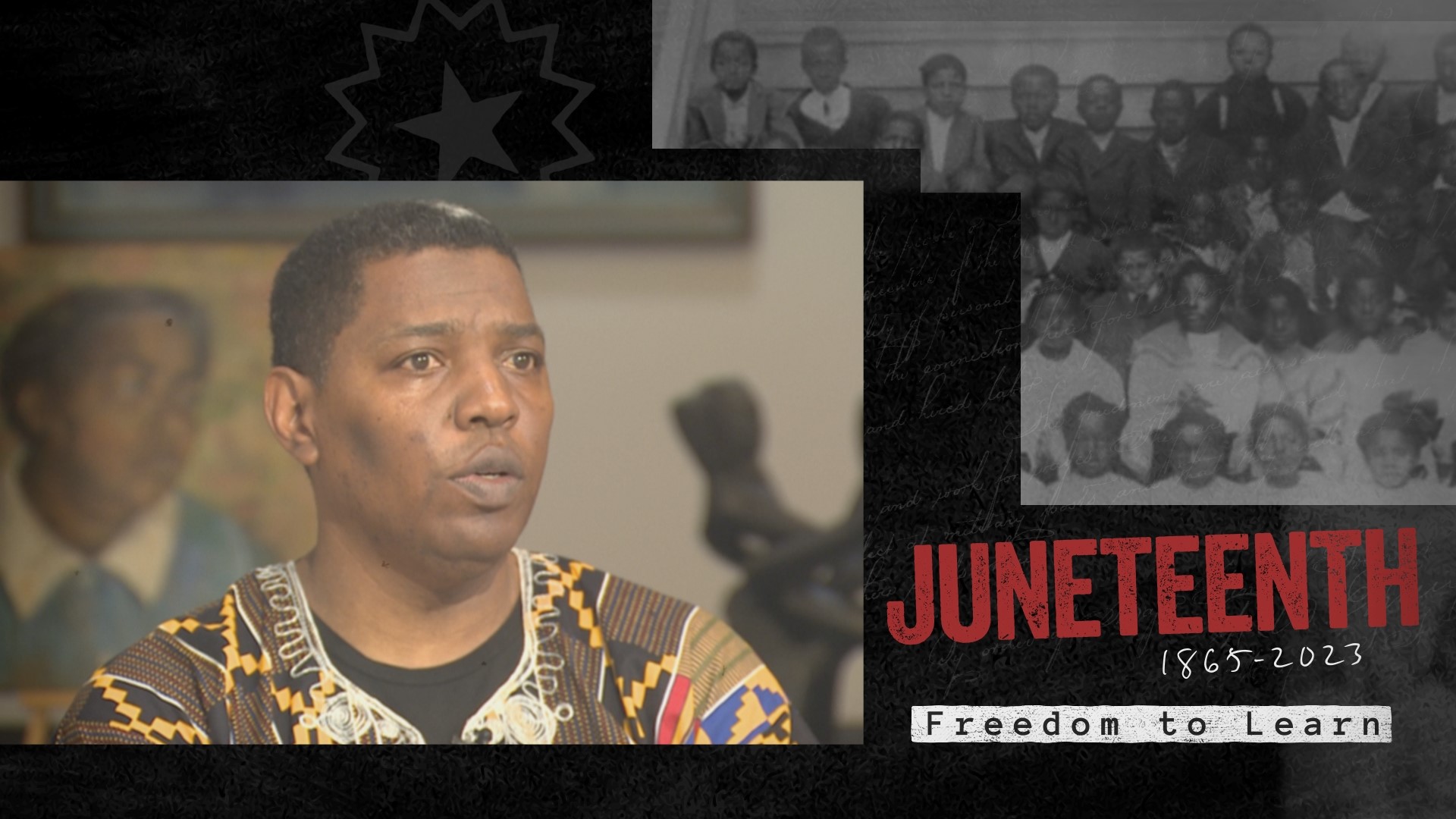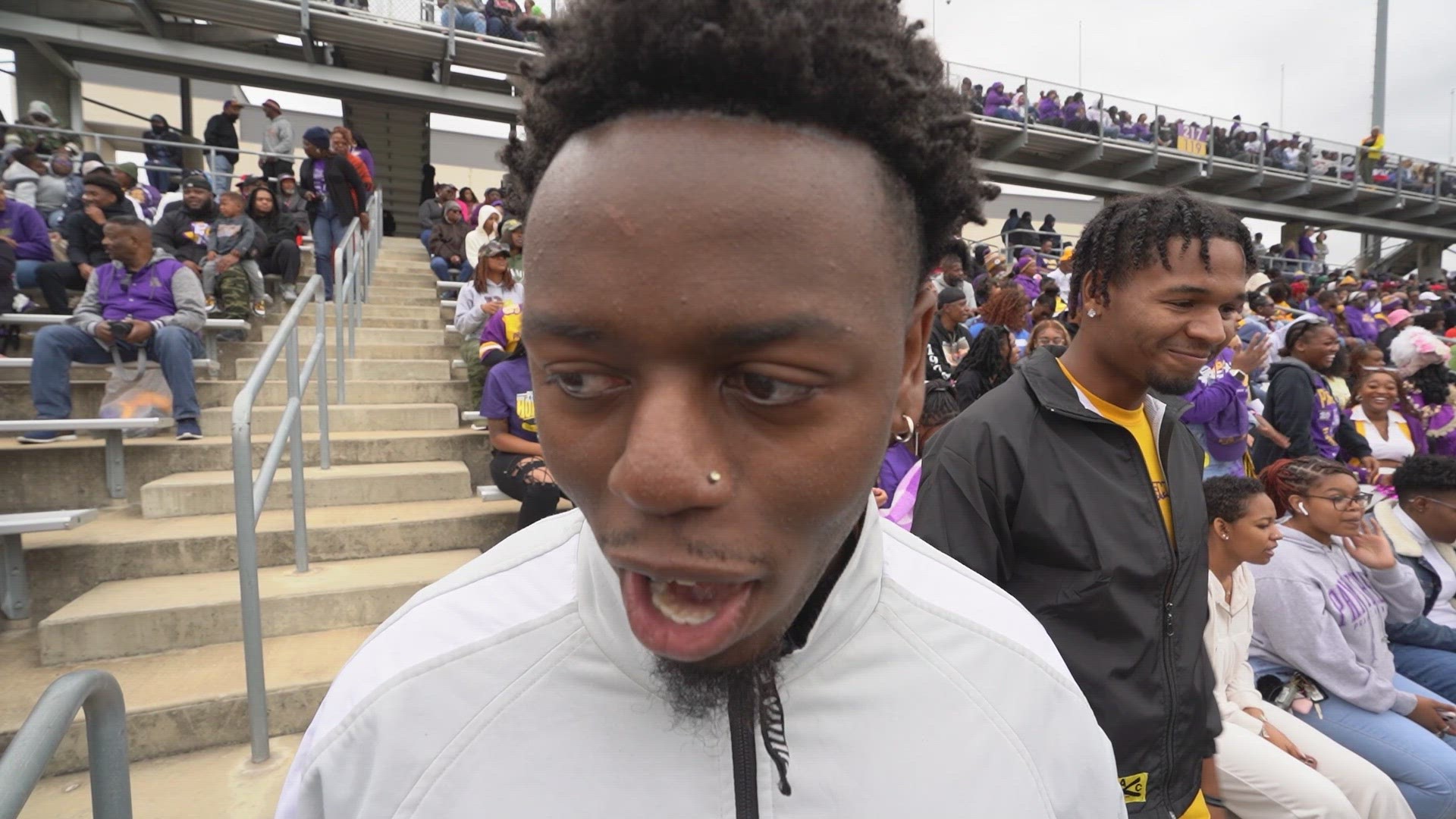Juneteenth 1865-2023: Freedom to learn
Juneteenth 2023 dives into education before, during and after slavery; the creation of HBCUs, its significance, and how Juneteenth is being taught today.
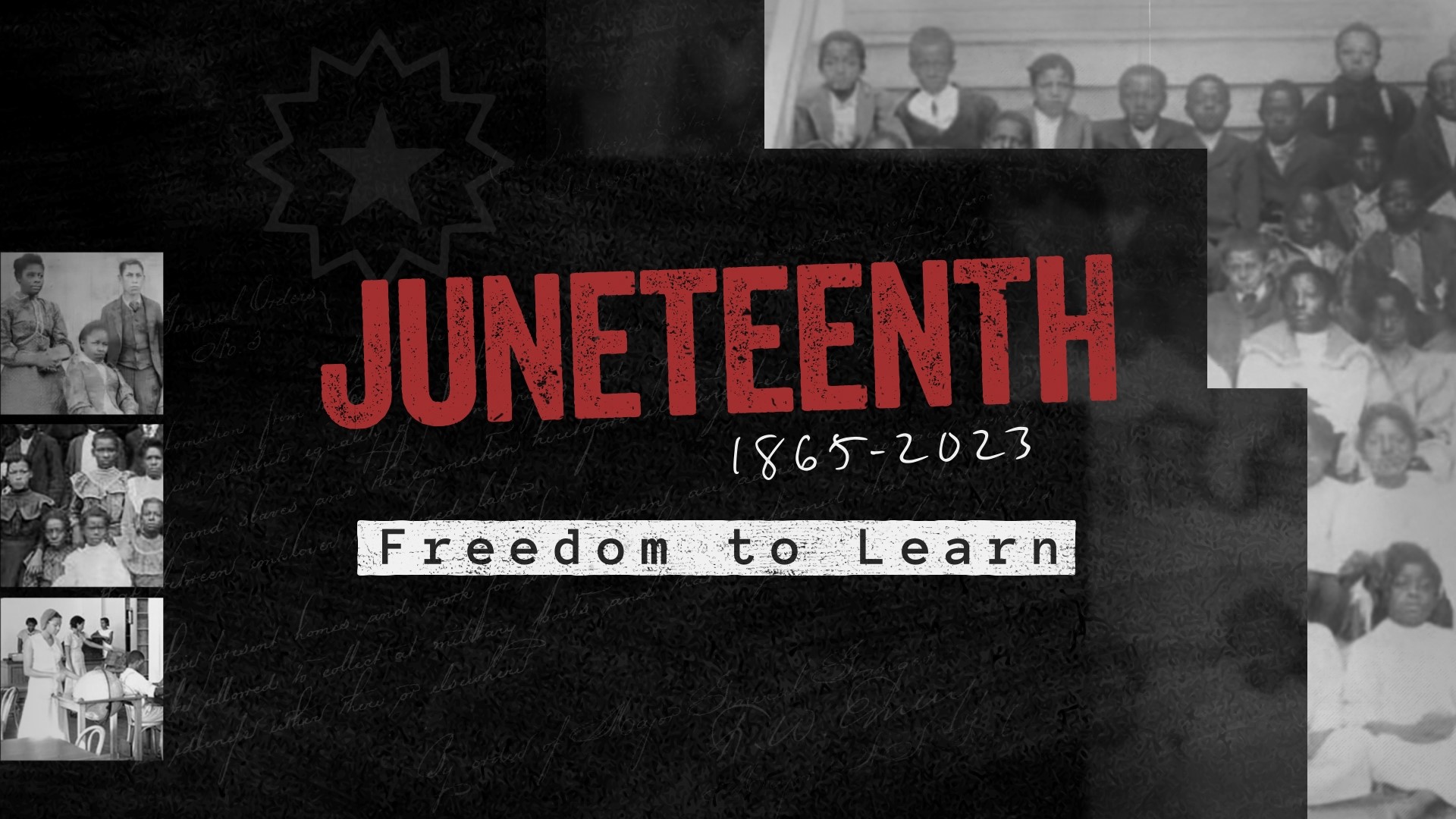
Education for Black Americans didn’t come easy.
Because Black Americans were held back from freedom during slavery, it also held them back from education, and to this day, the Black community is still feeling the ramifications.
Due to the lack of resources, finances and a multitude of other external factors, many Black Americans don’t have the opportunity to take advantage of a higher education. For example, only 35% of Black Americans have associate degrees or higher, and Black student enrollment has also declined over the last 10 years, according to a Lumina Foundation-Gallup 2023 State of Higher Education study.
When there is low enrollment, specifically for historically black colleges -- also known as HBCUs -- there are fewer resources and funding available for the institutes that paved the way for many freed slaves to receive an education.
The last enslaved Black Americans were told they were free in Galveston, Texas on June 19, 1865, also known as Juneteenth. The birth of two of the biggest HBCUs in the country came soon after -- Texas Southern University and Prairie View A&M University.
PVAMU is a direct result of Juneteenth. Once enslaved Black Americans in the South found out they were free, the land PVAMU sits on went from a plantation to providing them an education.
TSU professor Dr. Karen L. Kossie-Chernyshev said the history of HBCUs is directly related to racism and segregation.
“Our nation wasn’t ready for people of African descent to study with white Americans,” she said.
Over the years, many Black Americans, and people of other races, have decided to follow in their ancestors’ footsteps and attend an HBCU, which has provided the campuses with exposure.
To know an HBCU is to know homecomings, marching bands, step shows, and more importantly – culture. To celebrate HBCUs and the history of Black education, we have to take a look back at how it all got started, which for some, could be a hard story to digest.
A stolen education “It’s always a story about what they don’t have instead of the kinds of talents that they actually did have.”
Before Black people were forced to migrate to America, they lived a prosperous life on the continent of Africa.
“From Africa, we get math, science, language and culture,” said Galveston historian Sam Collins. “All of these things that were lost in the transatlantic slave trade. So there was so much success and accomplishment, and achievement.”
As more Black people were forced to enter the slave trade, their native languages were lost and they were forced to learn English and other religions that they weren’t accustomed to.
“African people, because they lived in areas where there were lots of different languages, there's not one language, they were good at that,” Professor Annette Gordon-Reed said. “And they very often served as translators and guides, among Native Americans…so that's not something you think of when you think about enslaved people.”
One of those people was Estevanico, who is considered to be the first African to come to North America.
Estevanico was a linguist who came to Texas in the 1520s.
“He came as an enslaved man, but because of circumstances, ended up being pivotal to the survival of a group of people after shipwreck,” Gordon-Reed said.
Pivotal because Estevanico had a talent for languages, like many Africans. Estevanico used that talent to become a translator for Europeans, Spanish and Native American tribes he and those aboard the shipwrecked boat encountered.
This piece of history paints a different picture of Black people, showing they were valuable far before that characteristic trait was taken from them.
“So many things have been left out of our textbooks, and it is important that we fill in those gaps by telling the rest of the story.”
A secret education “We were forbidden to read..."
Centuries later, Africans from countries like Ghana and Nigeria quickly picked up the English language because they were forbidden to speak in their native tongue and could be punished for doing so.
Though they could now speak English, it was dangerous for other people to know that they could read and write, forcing many Africans to learn English in secret.
“We were forbidden to read, but some of us thought we couldn’t read, I’m sure,” said former Prairie View A&M University President Ruth Simmons “But when you start to read, that opens up an entire world to you about who you can be and what life is like elsewhere.”
An idea that slave owners didn’t want Africans to know about, let alone acquire.
“Absolutely a power move,” Gordon-Reed said. “It’s hard to control people when they can read, when they’re literate, and certainly, if they can write as well. Those skills together will create a thirst for knowledge. The more you learn, the more you want to learn and they wanted a workforce that was closed off as much as possible.”
In 1831, Nat Turner led one of the biggest slave rebellions in U.S. history. He was trusted because he was educated.
In response to the rebellion, a majority of slave states passed official laws against teaching enslaved people how to read and write. Black people then learned a different set of skills.
“They certainly had to be able to read people who were their captors. The people who were in control of them,” Gordon-Reed said. “They had to learn to observe and to learn how to deal with people who were holding them in bondage.”
Those weren’t the only things. Enslaved people who were ripped from their homes and families had to learn how to cope. Family for enslaved people wasn’t just their biological mother and father anymore. They had to learn how to form a familial relationship with the people around them.
“If you think about situations where people were sold away from family members, very often, other people in the community would step in and take care of family members,” Gordon-Reed said. “That’s a big part of the Black community that continues to this day. The idea that family can be extended.”
Enslaved people also understood the law. There were many times enslaved people thought they could file “freedom suits,” Reed said. They went to court sometimes even knowing if they would lose, they could get into a lot of trouble."
An education after freedom (1865) “This was a time of hope for lots of people after what they had gone through.”
Freedom came to the last of the enslaved people on June 19, 1865.
Plantation owners in Texas ignored the Emancipation Proclamation of 1863 until General Gordon Granger and thousands of soldiers, many of them being U.S. colored troops, came to Galveston, Texas two years later, officially ending slavery in the state.
“People seeing Black soldiers with blue uniforms…I’m sure that enslaved people were just blown away by the very sight of that, not only the enslaved people but the white citizens,” Collins said.
In the days forward, Black people put on events to celebrate their freedom.
Freedom meant a chance at education. Something that was denied to them before the end of slavery because of anti-literacy laws put in place to prevent Black people from reading. Now that they were free, most Black people were anxious to become literate because they saw that as power.
A separate education "There were entities...educating African Americans, and those entities became later known as our historically Black colleges..."
Less than three months after slavery ended in Texas, Black people began setting up schools in Galveston.
The first one opened in Galveston on Sept. 4, 1865, at a Black Baptist church, now called Avenue L. Baptist Church. Two days later, a second school was opened.
Together, both of these schools had about 300 students.
“It was the first time that black people in an organized way had an opportunity to achieve an education,” Gordon-Reed said.
In 1872, The Gregory School opened in Houston, providing an education for children and adults.
“The idea wasn’t just to have them in elementary schools. I mean, that was important, that kind of education, but institutes of higher learning as well,” Gordon-Reed said.
Prairie View A&M University was founded 11 years after Juneteenth. On March 11, 1878, the first students – eight Black men – enrolled. The majority of those students became educators because there was a need in the Black community to educate the formerly enslaved who didn’t know how to read, write or count.
Houston’s Texas Southern University was founded in 1927 after the Houston Independent School District wanted to open evening classes for its students. In the same year, the University of Houston was founded.
TSU was built for Black people and the University of Houston was for white people.
“It was illegal for African Americans to learn, to read, to write, to go to what we now call predominately white institutions,” said Brian Armstrong of Texas Southern University. “There were entities, you know, educating African Americans, and those entities became later known as our historically Black colleges and universities, or HBCU institutions.”
A Black education " I love my HBCU."
The U.S. started with just a handful of HBCUs. Today, we now have more than 100 in the U.S. and the Caribbean.
Some of those schools include:
- Tennesse State University -- attended by Oprah Winfrey
- Morehouse College -- attended by actor Samuel L. Jackson
- North Carolina State University -- attended by civil rights activist Jesse Jackson
- Howard University -- attended by Vice President Kamala Harris
Why an HBCU? For some students, it's culture.
"I knew right off the bat when I went to the State Fair Classic -- my dad took me a few years ago -- I just loved the energy and I knew I would be here," said PVAMU student Lamaya Dwellingham.
For others, it's love.
"It's more like you get to know your family because this is a big family," said another PVAMU student. "And you just get to interact with everybody, make new friends, new family members, everything. I just love it. I love my HBCU."
It's hard not to love an HBCU. An institution that had to make its own path because it wasn't equipped with the same resources as the masses.
HBCUs founded their own sororities, their own athletic conferences and their own culture, which still stands just as prevalent today as it did decades ago.
At HBCUs, the title of homecoming queen is not just given to the most popular student on campus. At Black institutions, the "homecoming queen" is elected to represent the campus and the culture.
"It is the greatest honor a woman can receive at Prairie View A&M University," said Taverlyn Shepard, Miss PVAMU 2022. "I love to make sure that the Prairie View image of a woman is of grace, poise and intellect. It is my honor to do so."
Homecomings are a different tradition too compared to your predominately white institutions (PWIs).
"It's really, just the energy. Like the feeling of family where everybody just comes back and it's just like one big party, but like, a safe one," said Hannah Brown, a PVAMU student. "Like Thanksgiving."
The resilience, family feel, culture and energy of an HBCU is part of the reason why enrollment at Historically Black Colleges increased by 14% between 1976 and 2021, according to the National Center for Education Statistics. It's why HBCUs continue to grow.


